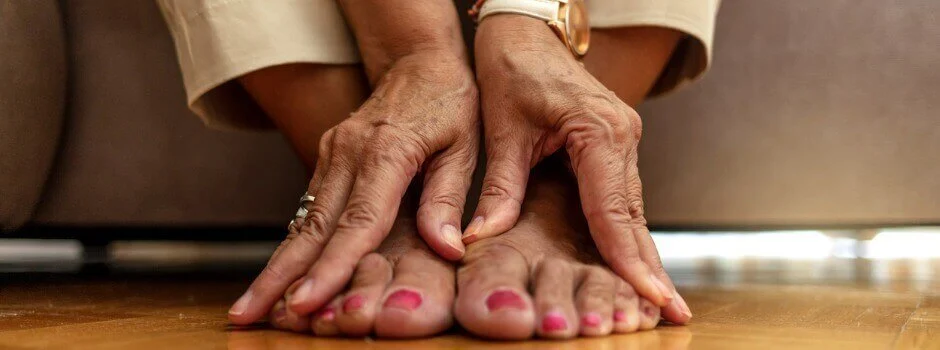Did you know that
each foot contains 26 bones, 33 joints, and over a 100 muscles, ligaments, tendons, and nerves? It’s no wonder foot care is essential to stay healthy and maintain a good quality of life.
Foot pain and injuries can make it hard for all of us to walk, especially those who are older. “Maintaining balance, getting out of a chair, and doing other daily activities can all be impacted by foot injuries in seniors,” says
Kate Donkor, a family nurse practitioner at InnovAge’s Inland Empire PACE center in
San Bernardino, California.
Donkor shares these six tips:
- Check your feet every day for cuts, redness, swelling, sores, or other changes to the skin or nails.
- Keep toenails trimmed and well groomed. Talk to your doctor if you need assistance. “Overgrown or ingrown nails can cause pain, infections, and make it hard to walk,” says Donkor.
- Moisturize feet regularly, especially the heels, to help keep cracks and sores at bay. Many adults experience thinning skin as they age, meaning the skin is less able to repair itself once cracks or sores appear. Make sure moisturizer is fully absorbed before standing up to avoid slipping.
- Protect your feet and wear shoes that fit well. “Many older adults might be wearing shoes that are too small. As we age, our feet can expand, so it’s really important to check your shoe size,” says Donkor. When shoes fit properly, you are less likely to fall, or get blisters, calluses, and other sores.
- Promote circulation by massaging your feet and elevating legs when at rest.
- If you have diabetes, be especially mindful of any changes in your feet, including cuts and sores, changes in the color of your skin, and numbness or tingling. Donkor explains, “Foot injuries can take longer to heal in diabetics and the nerve damage from elevated blood sugar levels and reduced blood flow can lead to serious complications.”
Donkor advises older adults, or their family caregivers, to check their feet regularly, have them checked at every health care visit, and plan for full foot exams every year. “Good foot care is so important to our overall health and quality of life,” she says.
